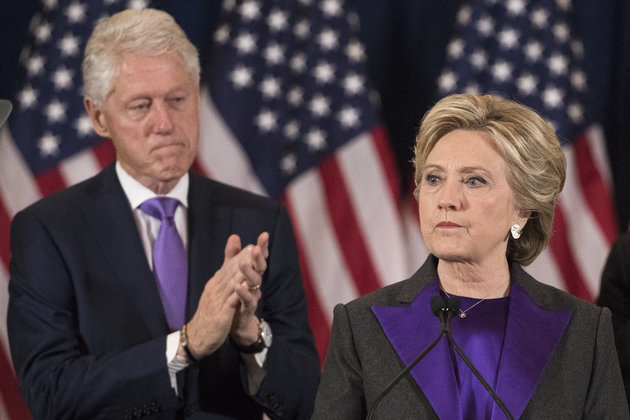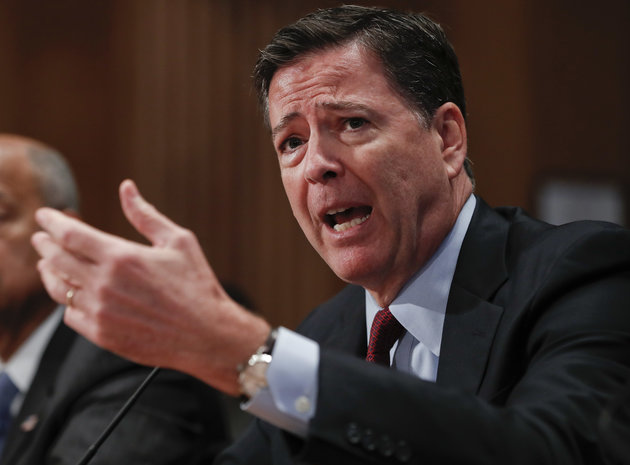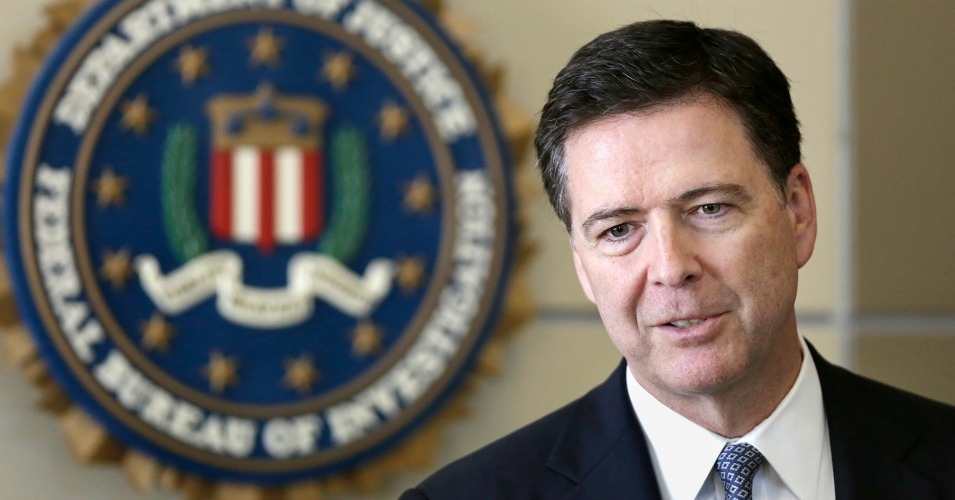
By Sam Stein, Senior Politics Editor, (The Huffington Post)
WASHINGTON ― In the closing weeks of the presidential campaign, Hillary Clinton’s staff in key Midwest states sent out alarms to their headquarters in Brooklyn. They were facing a problematic shortage of paid canvassers to help turn out the vote.
For months, the Clinton campaign had banked on a wide army of volunteer organizers to help corral independents and Democratic leaners and re-energize a base not particularly enthused about the election. But they were volunteers. And as anecdotal data came back to offices in key battlegrounds, concern mounted that leadership had skimped on a critical campaign function.
“It was arrogance, arrogance that they were going to win. That this was all wrapped up,” a senior battleground state operative told The Huffington Post.
Several theories have been proffered to explain just what went wrong for the Clinton campaign in an election that virtually everyone expected the Democratic nominee to win. But lost in the discussion is a simple explanation, one that was re-emphasized to HuffPost in interviews with several high-ranking officials and state-based organizers: The Clinton campaign was harmed by its own neglect.
In Michigan alone, a senior battleground state operative told HuffPost that the state party and local officials were running at roughly one-tenth the paid canvasser capacity that Sen. John Kerry (D-Mass.) had when he ran for president in 2004. Desperate for more human capital, the state party and local officials ended up raising $300,000 themselves to pay 500 people to help canvass in the election’s closing weeks. By that point, however, they were operating in the dark. One organizer said that in a precinct in Flint, they were sent to a burned down trailer park. No one had taken it off the list of places to visit because no one had been there until the final weekend. Clinton lost the state by 12,000 votes.
A similar situation unfolded in Wisconsin. According to several operatives there, the campaign’s state office and local officials scrambled to raise nearly $1 million for efforts to get out the vote in the closing weeks. Brooklyn headquarters had balked at funding it themselves, arguing that the state already had a decent-sized footprint because of the labor-backed super PAC For Our Future and pointing out that Clinton had never trailed in a single poll in Wisconsin.
The campaign’s state office argued additionally for prominent African-American surrogates to help in Milwaukee. “There are only so many times you can get folks excited about Chelsea Clinton,” explained one Wisconsin Democrat. But President Barack Obama and first lady Michelle Obama didn’t come. Nor did Hillary Clinton after the July Democratic convention. She would go on to lose the state, hampered by lower turnout in precisely the place that had operatives worried. Clinton got 289,000 votes in Milwaukee County compared to the 328,000 that Obama won in 2012.
“They had staff on the ground and lots of volunteers, but they weren’t running a massive program because they thought they were up 6-7 points,” said the aforementioned senior battleground state operative.
In politics, much like anything else, victory has a thousand fathers and defeat is an orphan. A senior official from Clinton’s campaign noted that they did have a large staff presence in Michigan and Wisconsin (200 and 180 people respectively) while also stressing that one of the reasons they didn’t do more was, in part, because of psychological games they were playing with the Trump campaign. They recognized that Michigan, for example, was a vulnerable state and felt that if they could keep Trump away ― by acting overly confident about their chances ― they would win it by a small margin and with a marginal resource allocation.
Clinton herself has blamed FBI Director James Comey for re-launching an investigation into her emails only to clear her days before the vote; while operatives across the spectrum, including former President Bill Clinton in the campaign’s closing days, argued that she failed to adequately reach working class white voters that had been drifting away from the Democratic Party.
“It is not black and white,” said Michael Tate, the former chair of the Democratic Party of Wisconsin. “I can tell you in Wisconsin that the staff they had leading the effort were top-notch field operatives. Period. Would it have helped if Hillary Clinton came in? Yes. Would it have helped if Comey didn’t push his shenanigans? Yes. Would it have helped if Trump hadn’t visited right before the election? Yes … But I think the folks here did a good job and they just came up short in an election where we were running two historically unpopular candidates.”
The more universal explanation, however, was that the data that informed many of the strategic decisions was simply wrong. A campaign that is given a game plan that strongly points to success shouldn’t be expected to rip it up.
“We all were blinded, and even at the end, we were blinded by our own set of biases,” said Paul Maslin, a Madison-based Democratic operative and pollster.
Which explains why, in a Midwest battleground state that the Clinton campaign’s data said would be closely contested, its ground game capacity was robust. Adrienne Hines, chair of the Democratic Party in Ottawa County, Ohio, just east of Toledo, said the Clinton campaign had a very active outreach and turnout operation. But the county, which Obama won twice, still went to Trump as his message ― however detail-free ― of bringing back jobs to the economically depressed area resonated.
“We were dealing with somebody who could say whatever he wanted. It is like being at the Olympics and somebody is on steroids and somebody is not, and then blaming the person not on steroids,” Hines said of criticism of Clinton campaign tactics.
It is like being at the Olympics and somebody is on steroids and somebody is not, and then blaming the person not on steroids.Adrienne Hines, chair of the Democratic Party in Ottawa County, on Trump’s messaging
As Democrats begin to repair their party and learn from the shortcomings of the Clinton campaign, one of the primary arguments being made is that candidates have to show up if they expect to win. Obama said as much in a recent press conference when he tied his success in Iowa to the sheer number of stops he made in the state while campaigning. And the data strongly suggests that this was a vulnerability for Clinton. As the Washington Post reported, Clinton’s campaign and outside groups supporting it aired more television ads in Omaha during the closing weeks than in Michigan and Wisconsin combined. And as NBC News reported, during the final 100 days of the election, Trump made 133 visits to Florida, Pennsylvania, Ohio, North Carolina, Michigan and Wisconsin while Clinton made 87.
On the margins as well, campaign operatives say the Clinton campaign’s failure to have a footprint did real harm. In Pennsylvania, for example, the campaign had a healthy canvassing operation and was flush with volunteers, many of whom poured in from New York City and Washington, D.C. But according to one longtime grassroots campaign operative who was involved in the 2016 cycle, leadership was focused predominantly on turning out their own voters and not on persuading others to come on board.
This was a perfectly logical strategic decision, considering the massive voter registration advantage that Democrats enjoy in the state. But it meant that the Clinton campaign wasn’t able to anticipate the surge in Trump support in the rural areas because they weren’t having conversations with voters there.
The results bear this out. In Philadelphia County, Clinton got slightly more votes than Obama did in 2012 despite having a slightly smaller percentage of the vote total. But outside the city and suburbs, she lost badly. Whereas Mitt Romney won 57 percent of Elk County, 63.7 percent of Clearfield County and 72 percent of Jefferson County in 2012, Trump took in 70 percent, 73.1 percent and 78.3 percent of those counties respectively.
“Paid canvassers compensate for candidates who don’t have a huge volunteer base,” said the grassroots campaign operative. “Hillary Clinton had [a huge volunteer base]. It just wasn’t always in the places they needed it to be.”


